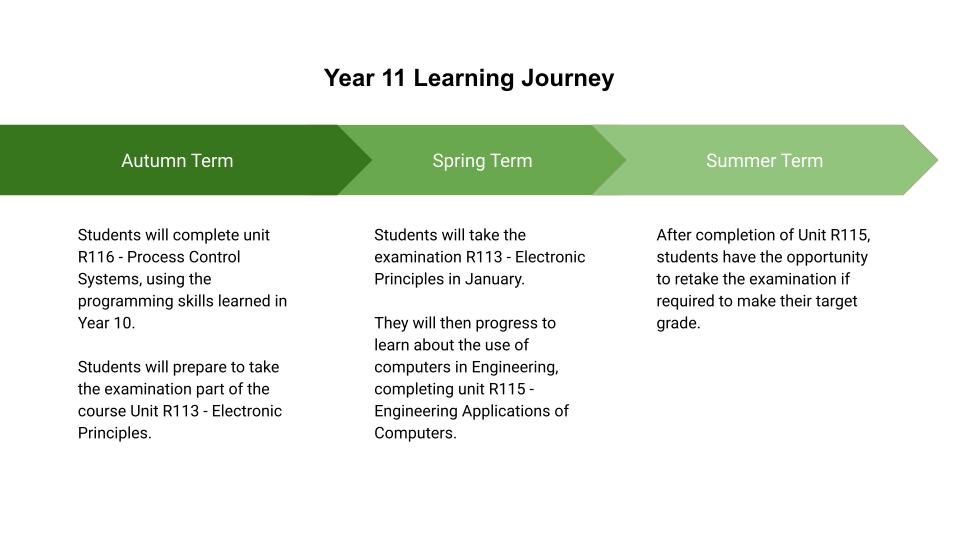Systems Control Engineering
What do students learn in Systems Control Engineering in Key Stage 4?
This is a vocational course that teaches students about designing, making and understanding electronic circuits, programming microcontroller circuits and how computers are used in engineering for designing, manufacturing, maintenance and monitoring. It is a truly modern course that is relevant to the modern world.
How will students learn in this course including home learning?
Students learn through a mixture of practical and theory tasks. Students design, make and test circuits in a variety of ways. ICT is used frequently to aid learning and carry out some of the practical tasks. Students design systems as products and systems for manufacturing and to aid maintenance. Home learning tasks are typically Google Quizzes that help to consolidate the learning undertaken in class.
You can try a sample home learning task here
How are students assessed in this course?
This course is made up of 4 units, each worth 25% of the final grade. 1 of these units is an external marked exam which can be taken twice, in January and June of year 11. The other 3 units are internally assessed pieces of coursework.
What is the learning sequence?


What qualification is gained from which exam board?
OCR National Level 1 or 2
Link to exam board specification
OCR Systems Control Engineering
How is it graded?
Grades available are Level 1 Pass (1), L1 Merit (2) Level 1 Distinction (3), Level 2 Pass (4), Level 2 Merit (5.5), Level 2 Distinction (7) Level 2 Distinction* (8.5)
GCSE grade equivalents in brackets
What further education and or careers can this qualification lead to?
Students can progress to study Btec Level 3 Engineering or A Level Product design in our 6th form. This can then lead to numerous design or engineering careers, including apprenticeships. To read further about engineering careers click on this link.
Students who wish to leave school at 16 must still continue in their education until they are 18. Local colleges provide courses such as electrical and electronic engineering to name a few.
Apprenticeships are also a great option for school leavers. Engineering in the local area continues to be a major provider of employment. Companies such as Rolls Royce, Toyota, Marstons, Bombardier, Nestle and JCB all take on apprentices each year as well as the many smaller engineering firms in the local area.
